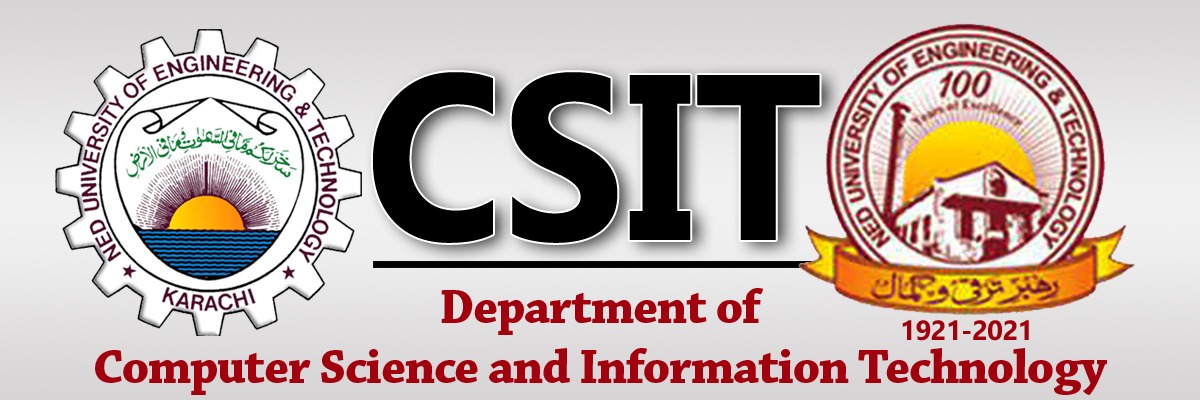Vision & Mission Statement
Department Vision
To be a leader in Computer Science and Information Technology education and interdisciplinary research for generating national and global impact that includes economic and social benefits.
Programme Mission
To provide quality education in Computer Science and emerging and cross disciplinary avenues with well-balanced emphasis on conceptual knowledge and hands-on experience that enable graduates to lead their profession with integrity, serve society, and uplift the economy.
Program Educational Objectives (PEOs).
After three to five years, the graduates of the program will be able to exhibit the following computational skills:
PEO-1: Demonstrate a sound understanding of computing fundamentals with an ability to exercise critical judgment across a range of related issues.
PEO-2: Critically analyze and design solutions for complex computing problems with best practices and use of modern tools and techniques.
PEO-3: Function and communicate effectively as a leader or team member having understanding of professional ethics and social responsibility.
PEO-4: Adapt technological advancements through active participation in life- long learning to serve society.
Program Learning Outcomes (PLOs).
PLO-1 Academic Education: To prepare graduates as computing professionals.
PLO-2 Knowledge for Solving Computing Problems: Apply knowledge of computing fundamentals, knowledge of a computing specialization, and mathematics, science, and domain knowledge appropriate for the computing specialization to the abstraction and conceptualization of computing models from defined problems and requirements.
PLO-3 Problem Analysis: Identify, formulate, research literature, and solve complex computing problems reaching substantiated conclusions using fundamental principles of mathematics, computing sciences, and relevant domain disciplines.
PLO-4 Design / Development of Solutions: Design and evaluate solutions for complex computing problems, and design and evaluate systems, components, or processes that meet specified needs with appropriate consideration for public health and safety, cultural, societal, and environmental considerations.
PLO-5 Modern Tool Usage: Create, select, adapt and apply appropriate techniques, resources, and modern computing tools to complex computing activities, with an understanding of the limitations.
PLO-6 Individual and Teamwork: Function effectively as an individual and as a member or leader in diverse teams and in multi-disciplinary settings.
PLO-7 Communication: Communicate effectively with the computing community and with society at large about complex computing activities by being able to comprehend and write effective reports, design documentation, make effective presentations, and give and understand clear instructions.
PLO-8 Computing Professionalism and Society: Understand and assess societal, health, safety, legal, and cultural issues within local and global contexts, and the consequential responsibilities relevant to professional computing practice.
PLO-9 Ethics: Understand and commit to professional ethics, responsibilities, and norms of professional computing practice.
PLO-10 Life-long Learning: Recognize the need, and have the ability, to engage in independent learning for continual development as a computing professional.
Mapping of PLOs to PEOs.
| Program Learning Outcomes (PLOs) | Program Educational Objectives (PEOs) | |||
| PEO-1 | PEO-2 | PEO-3 | PEO-4 | |
| PLO 1: Academic Education | ✔ | |||
| PLO 2: Knowledge for Solving Computing Problems | ✔ | |||
| PLO 3: Problem Analysis | ✔ | |||
| PLO 4: Design / Development of solutions | ✔ | |||
| PLO 5: Modern Tool Usage | ✔ | |||
| PLO 6: Individual and Team Work | ✔ | |||
| PLO 7: Communication | ✔ | |||
| PLO 8: Computing Professionalism and Society | ✔ | |||
| PLO 9: Ethics | ✔ | |||
| PLO 10: Lifelong Learning | ✔ | |||
